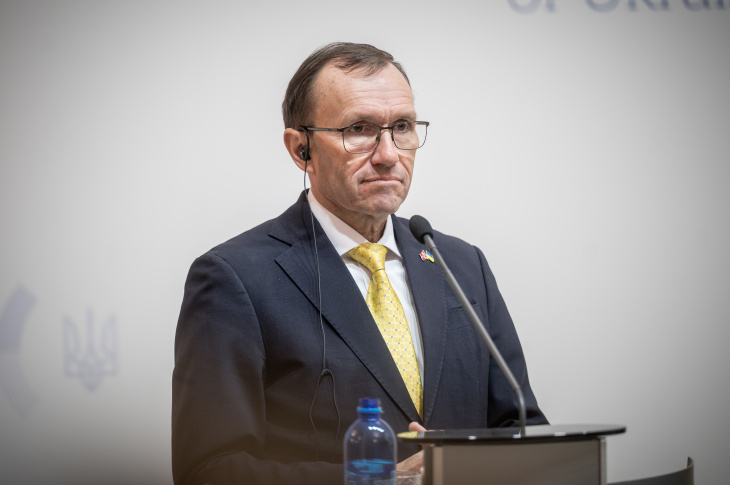By Ukrainian Institute for the Future
On December 4, at a briefing in Brussels after meeting with the foreign ministers of NATO countries, U.S. Secretary of State Antony Blinken, from the outgoing Biden administration, emphasized that the mobilization and equipping of troops are critical for countering Russian aggression.
“Ukraine must make difficult but necessary decisions regarding further mobilization. It is important to ensure the training and equipping of these forces,” said Blinken, noting that even with financial and military assistance from partners, people play a key role on the front lines.
These comments came in the context of remarks by White House National Security Advisor Jake Sullivan, who recently told PBS News that Ukraine must focus on increasing its troop numbers on the front lines, as even the most advanced weaponry cannot replace human resources.
On December 4, Speaker of the House Mike Johnson announced that he would not bring to the floor a vote on providing an additional $24 billion in aid to Ukraine as requested by President Biden. “This is no longer Joe Biden's decision to make. We have a newly elected president, and we are going to wait and adopt the strategy of the new commander-in-chief on all of this,” he said, adding that he “does not expect any votes on further funding for Ukraine right now.”
On January 20, 2025, the Biden team will hand over power and essentially step down in full. So why is the outgoing administration criticizing Kyiv sharply and urging it to take unpopular steps in the third year of the war?
The most likely reason is Washington’s frustration caused by the lack of positive progress during Biden’s presidency. When handing over a country with numerous internal problems to Trump, the Democrats hoped to reap political dividends from confronting Russia. However, Russia's military advances in Donetsk, along with increasing missile and airstrikes on Ukraine's civilian and energy infrastructure, leave no room to frame the situation as a “victory” for Kyiv with U.S. support. Even Biden's belated approval to use Western long-range weapons on Russian targets did little to help. It was just too late.
Meanwhile, Republicans, who gained the majority in Congress, have no intention of helping the Democrats improve Biden’s image and that of his team, especially after Biden Jr.'s controversial pardon by his father.
As a result, internal political disagreements in Washington are reflected in the U.S.-Ukrainian dialogue. One can only hope that official Kyiv understands the opportunistic nature of the criticism being voiced and will focus on building constructive working relations with the new U.S. administration.




















